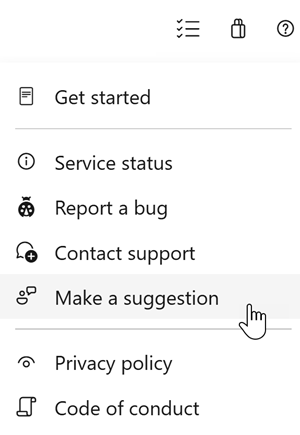Note
Access to this page requires authorization. You can try signing in or changing directories.
Access to this page requires authorization. You can try changing directories.
We’re thrilled to introduce a new capability in our Azure Boards and GitHub integration. You can now connect work items with the GitHub Copilot coding agent. This feature will let you create work items, add detailed instructions in the description, and seamlessly send them to Copilot. The coding agent can then tackle a range of engineering tasks such as bug fixes, incremental feature development, test coverage improvements, documentation updates, and technical debt remediation.
Check out the release notes for details.
GitHub Advanced Security for Azure DevOps
- New state filter available for Coverage in security overview
- Enhanced filtering and search capabilities for Coverage
- Granular enablement panels now available for project and organization-level enablement
Boards
Pipelines
GitHub Advanced Security for Azure DevOps
New state filter available for Coverage in security overview
In addition to the search and project filters, we've also added a new State filter. This allows you to filter by specific enablement states per Advanced Security feature across your organization for increased granularity and improved status monitoring. All filtering changes are also available via API and reflected as URL parameters in your browser.
Enhanced filtering and search capabilities for Coverage
Previously, the security overview Coverage page was a flat list of repositories which was hard to navigate or to find specific enablement statuses. We've added a search bar for keyword search and also a project slicer so you can now filter for enablement status across specific projects.
Granular enablement panels now available for project and organization-level enablement
Previously, users did not have the ability to modify sub-features at the project or organization-level, such as push protection or dependency scanning auto-injection. These changes now bring the same granular controls you see at the repository level to the project and organization enablement experiences after you select Enable all.
Boards
Azure Boards integration with GitHub Copilot (private preview)
Important
As of October 16, 2025, we are no longer accepting organization signups for the private preview. Our focus is now on completing the feature and preparing it for general availability in the coming weeks.
We’re excited to announce a new capability in our Azure Boards and GitHub integration: the ability to connect Azure Boards work items with the GitHub Copilot coding agent (private preview). This feature allows Azure DevOps customers to create a work item, provide instructions in the description, and send it directly to Copilot. The coding agent can then take on a variety of tasks such as fixing bugs, implementing incremental features, improving test coverage, updating documentation, or addressing technical debt.
To use the feature, simply open a work item and select the option to “Create a pull request with GitHub Copilot.” Copilot receives the work item content, including large text fields and recent comments, then generates a branch and draft pull request linked back to the work item for full traceability. Once the work is complete, the pull request status is updated on the work item and a comment is added to notify you that it is ready for review.

This feature is currently available in private preview. Organizations can request access to participate, which helps us collect feedback and refine the experience before broader release. Details on how to sign up are available in this blog post.
Deprecating clone work item
Based on the overall low usage and the fact that Copy and Clone provide almost the same functionality, we have decided to remove the Clone Work Item feature from the product. You can continue using Copy Work Item, which also allows you to edit the work item before saving.
Pipelines
AzureAppServiceManageV0 versioned extension support (public preview)
You can now specify App Service extensions as name@version (e.g., PythonExtension@3.9.0). If a version is specified, that exact version will be installed. If you specify latest as the version, the latest available version will be installed (in case it already has the latest version, installation will be skipped). If no version is specified, the extension will only be installed if it is not already present.
Examples: MyExtension@1.2.3, OtherExtension@latest, LegacyExtension.
Next steps
Note
These features will roll out over the next two to three weeks. Head over to Azure DevOps and take a look.
How to provide feedback
We would love to hear what you think about these features. Use the help menu to report a problem or provide a suggestion.

You can also get advice and your questions answered by the community on Stack Overflow.


